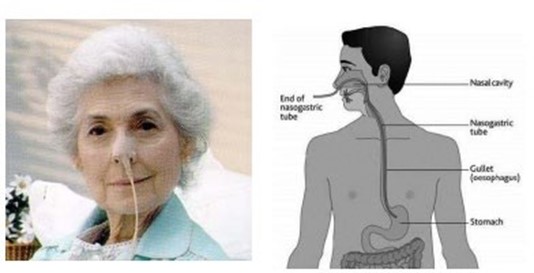A 46-year-old woman who was diagnosed with an upper respiratory infection yesterday and prescribed an antibiotic presents to the ED reporting. "l just don't feel right." The client has a history of diabetes mellitus type 2, hypertension, peripheral neuropathy, vascular disease, and retinopathy. On admission to a medical-surgical unit, the nurse implements a plan of care to prevent complications and maintain client safety while in the hospital.
Indicate which nursing action is appropriate to prevent complications of diabetes mellitus and maintain client safety while in the hospital.
Administer angiotensin-converting enzyme (ACE) inhibitor as prescribed.
Administer intravenous 5%D/NS at 200 mL/hr.
Administer I mg glucagon 1M PRN for blood glucose 70-90 mg/dL (3.9-5.0 mmol/L).
Ensure the path to the bathroom is well-lit.
Teach the client to rise slowly from the bed.
Coordinate meal-time insulin with food delivery and consumption.
Correct Answer : D,F,G
Option A is incorrect because administering an ACE inhibitor may be a part of the patient's regular medication regimen, but it is not specific to preventing complications of diabetes mellitus while in the hospital.
Option b is incorrect because administering intravenous fluids at a high rate may result in fluid overload, electrolyte imbalances, and other complications, which may not be appropriate for this patient.
Option c is incorrect because administering glucagon is not a preventative measure, but rather an intervention for treating hypoglycemia.
Option d is correct because ensuring a well-lit path to the bathroom is important for fall prevention, but it does not directly address the prevention of complications of diabetes mellitus.
Option e is incorrect because encouraging the client to drink sugar-free liquids is a general recommendation for maintaining hydration and may not be specific to preventing complications of diabetes mellitus.
Option f is correct because teaching the client to rise slowly from the bed is important for preventing orthostatic hypotension, but it does not directly address the prevention of complications of diabetes mellitus.
Option g is correct because Patients with diabetes mellitus are at risk for hypoglycemia when taking insulin or oral hypoglycemic agents. Proper coordination of meal-time insulin with food delivery and consumption can help prevent hypoglycemia or hyperglycemia. This includes ensuring that the patient receives insulin at the appropriate time in relation to meals and monitoring blood glucose levels regularly.
Nursing Test Bank
Naxlex Comprehensive Predictor Exams
Related Questions
Correct Answer is B
Explanation
Desmopressin acetate (DDAVP) is a synthetic hormone used to treat diabetes insipidus, which is a condition that causes excessive urination and thirst due to a lack of antidiuretic hormone (ADH) production in the body. By mimicking the effects of ADH, Desmopressin acetate (DDAVP) helps to reduce the amount of urine produced by the body and increase water reabsorption, which helps to alleviate symptoms of diabetes insipidus.
Therefore, the nurse should monitor the patient's urinary output and ensure that it decreases in response to the medication. It is important to note that Desmopressin acetate (DDAVP) can also cause hyponatremia (low sodium levels in the blood), so sodium levels should also be monitored during treatment.

Correct Answer is D
Explanation
The nurse should quickly assess the patient's vital signs to check for signs of shock and instability. If the vital signs are unstable, the nurse should initiate appropriate interventions to stabilize the patient, such as administering oxygen, starting IV fluids, and providing continuous cardiac monitoring. Based on the sudden onset of severe upper abdominal pain, diaphoresis, and a firm abdomen, the nurse should suspect a possible perforation or bleeding related to the peptic ulcer. This is a medical emergency that requires immediate intervention. Therefore, the nurse should prioritize notifying the healthcare provider and preparing the patient for urgent medical evaluation.
Option A, irrigating the NG tube, is not appropriate in this situation and may further exacerbate the patient's condition if the ulcer has perforated.
Option B, elevating the foot of the bed, is also not appropriate as it does not address the patient's current symptoms.
Option C, giving the ordered antacid, may not be effective in addressing the severity of the patient's symptoms and should be postponed until the healthcare provider has evaluated the patient.

Whether you are a student looking to ace your exams or a practicing nurse seeking to enhance your expertise , our nursing education contents will empower you with the confidence and competence to make a difference in the lives of patients and become a respected leader in the healthcare field.
Visit Naxlex, invest in your future and unlock endless possibilities with our unparalleled nursing education contents today
Report Wrong Answer on the Current Question
Do you disagree with the answer? If yes, what is your expected answer? Explain.
Kindly be descriptive with the issue you are facing.
